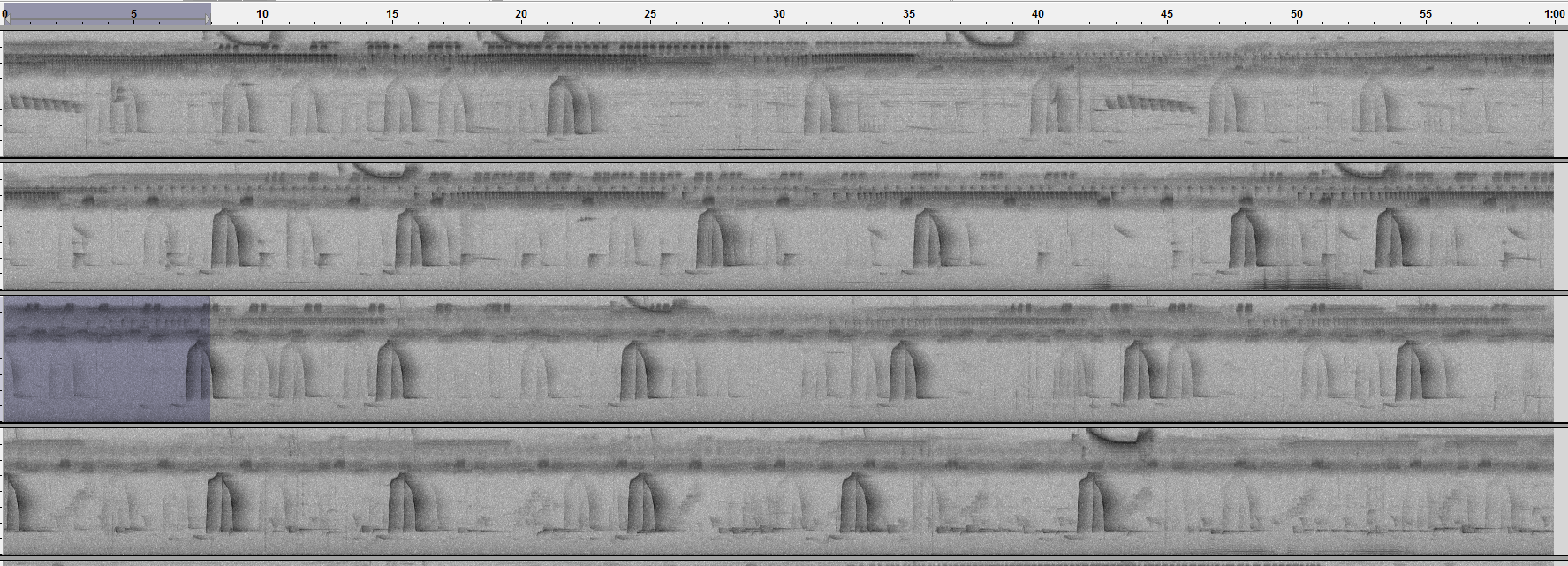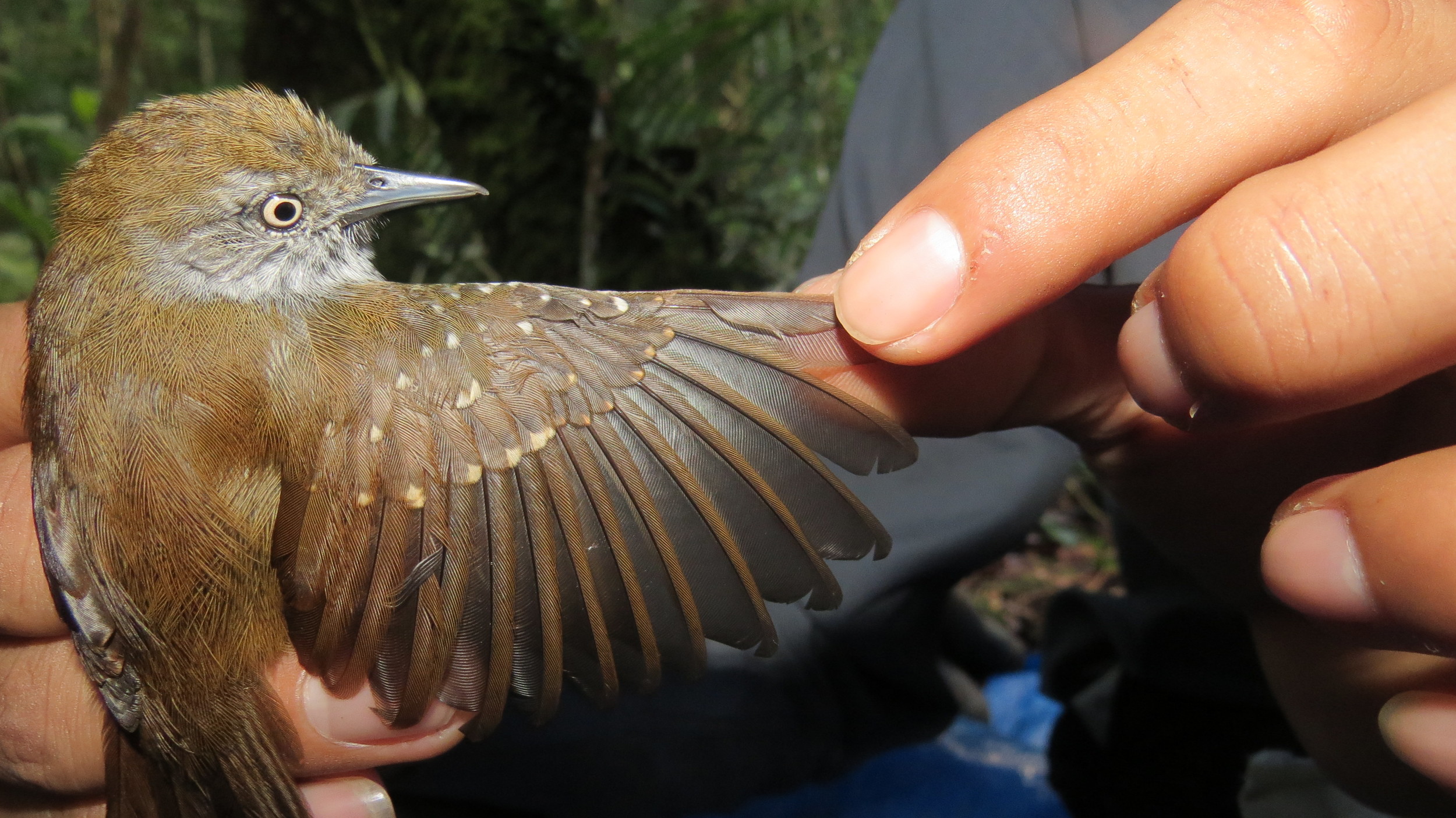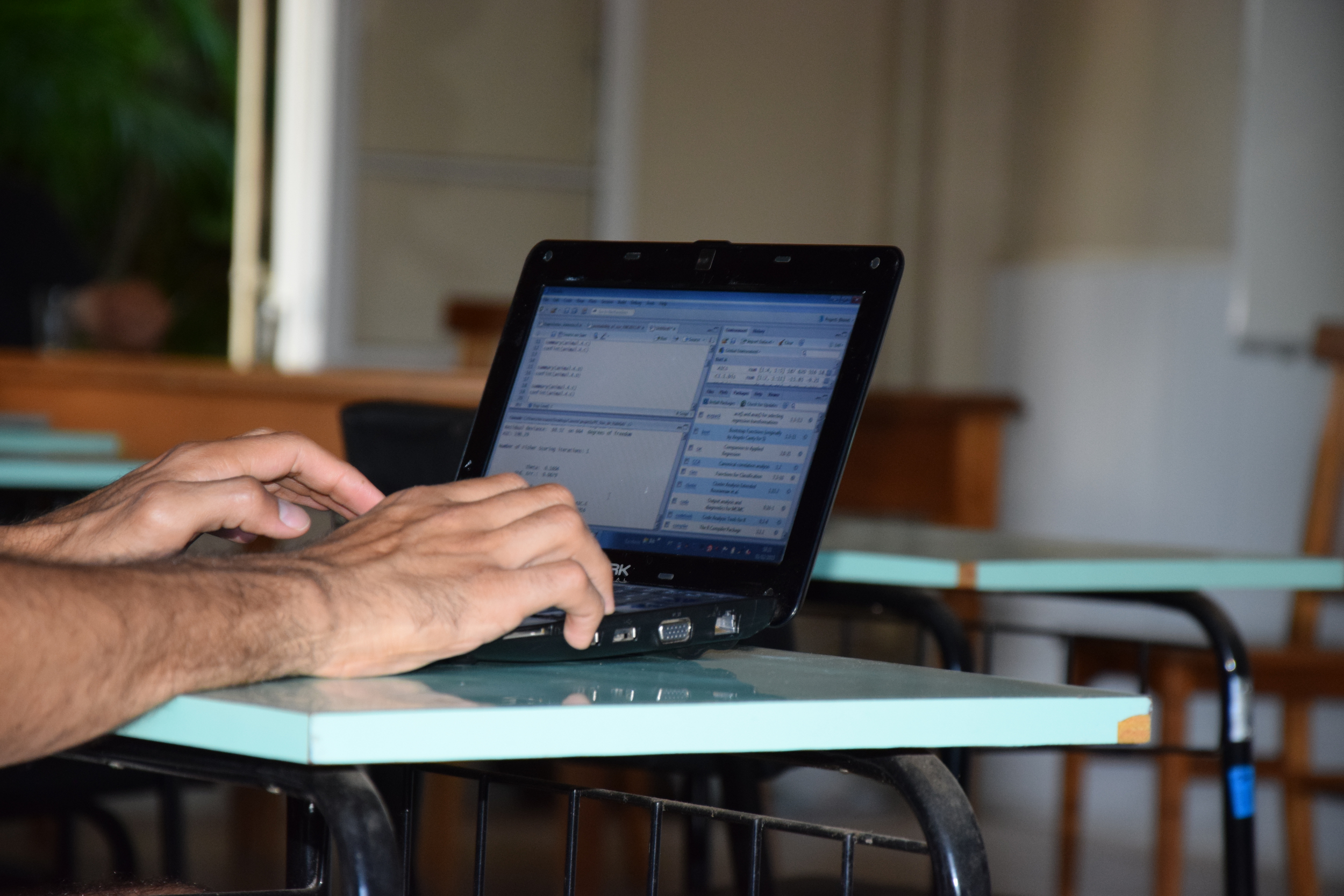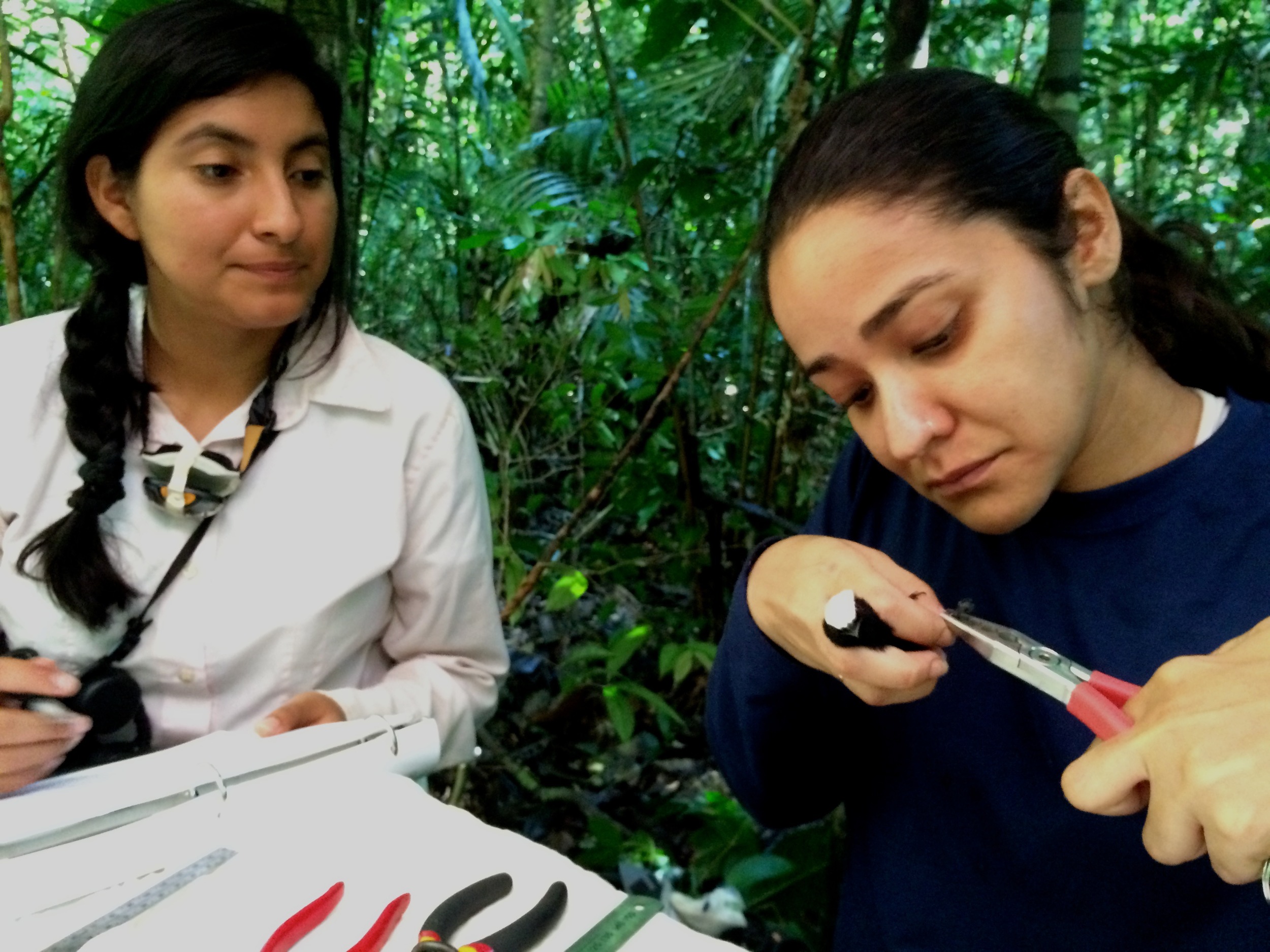
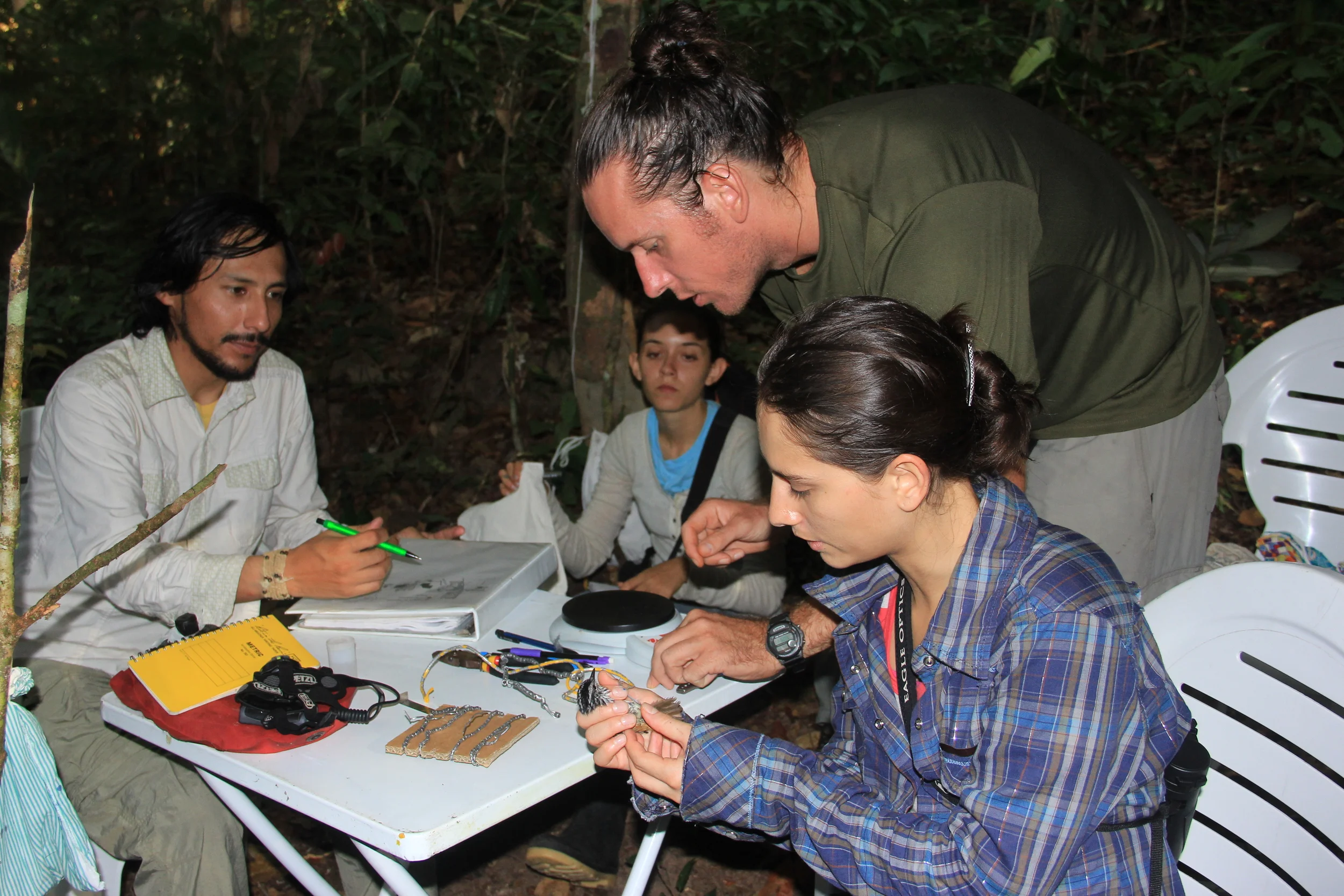



Ferraz Population Biology Lab
Universidade Federal do Rio Grande do Sul, Porto Alegre, Brazil
+55 (51) 3308-6934 / Email
Ferraz Population Biology Lab
Universidade Federal do Rio Grande do Sul, Porto Alegre, Brazil
+55 (51) 3308-6934 / Email
OUR GOAL
is to advance knowledge of spatial distribution and temporal dynamics of biological populations in nature.
We approach this goal through action on the three pillars of theory, observation, and modeling. Operationally, we work through the combination of scientific research, academic education, and outreach.
We are based at the Department of Ecology of the Universidade Federal do Rio Grande do Sul, in the south of Brazil. This site's contents are managed by the laboratory head, Gonçalo Ferraz, and do not aim to represent oficial positions of the supporting institutions.
THEORY
Motivation for our work stems from theoretical ideas found in the scientific literature, with a focus on ecology and evolutionary biology.
Observation
We design field surveys or experiments aimed at answering specific questions, based either on theoretical or on management problems.
modeling
Using a variety of statistical tools, we model our data to seek the answers that will inform further theoretical work or management decisions.

Research
How many individuals? Where? How do populations change in space and time?
Research
How many individuals? Where? How do populations change in space and time?
Population biology is a discipline of immense intellectual and practical appeal. Scientists from John Graunt to Lev Ginzburg have combined mathematics with the observation of nature to uncover the basic principles of population growth and spatial distribution. Today, with the developments of statistics and evolutionary biology, the field is only getting more exciting: the incorporation of molecular data into demographic models makes population biology one of the most integrative fields in the biological sciences, while statistical advances in hierarchical modeling make it possible to see through the imperfections of the sampling process and estimate biological parameters with unprecedented accuracy.
Our projects start with a question that leads to a model, which informs a sampling design. The resulting data is then subject to statistical modeling, returning answers in the form of parameter estimates. We take two main methodological approaches: the site-occupancy approach—where we focus on sites, asking where, when and why can we encounter a given species—and the demographic approach—where we focus on counting individuals and examining their fates. A substantial part of our work is about Amazon-forest birds, but we are interested in anything that is alive. We aim to get the numbers right, so as to offer insightful and informative backing for further progress in applied and theoretical biology.

Education
Read, abstract, measure. Think it all over again.
Education
Read, abstract, measure. Think it all over again.
Education adds meaning and life to our research. We are engaged in graduate and undergraduate teaching and mentoring, offering two undergraduate courses—on Evolutionary Medicine and on Population Biology—plus the Population Ecology core course at the UFRGS Graduate Program in Ecology.
The Population Ecology course has been offered since 2004, 22 times to 500+ students in five Brazilian schools. It provides theoretical and statistical foundations for population analysis. The undergraduate classes are recent developments suited to demands of the UFRGS undergraduate curricula.
So far we have mentored 16 MSc students and three undergraduate interns—six of whom are now pursuing PhD's outside Brazil. Mentoring is the most human dimension of our work. Teaching is a privilege that offers access to the classroom: a test ground and a source or research ideas.

Outreach
Sharing skills and knowledge beyond academia.
Outreach
Sharing skills and knowledge beyond academia.
As education adds meaning and life to research, outreach adds context and credibility. We identify as 'outreach' any activity that applies and exposes our work beyond academia. But sometimes outreach also involves reaching out to other academic institutions, so we don't see hard boundaries. Outreach is what doesn't kill you and makes you stronger by pushing you out
of the comfort zone in some way that is useful to society. We do this on three fronts: workshops, seminars, and ocasional engagements. Workshops are targeted at teaching technical skills, such as bird banding and statistical modeling; they bring together instructors from within and outside Brazil, and target participants from Latin America.
Seminars are a local initiative; we currently co-organize the 'Seminários de Biologia', a UFRGS-based, weekly series of biological research talks by scientists of the Porto Alegre area, to an audience of professionals and scientifically-minded laypeople. Occasionally, we also engage with the public sector or NGO's to address population management challenges.
